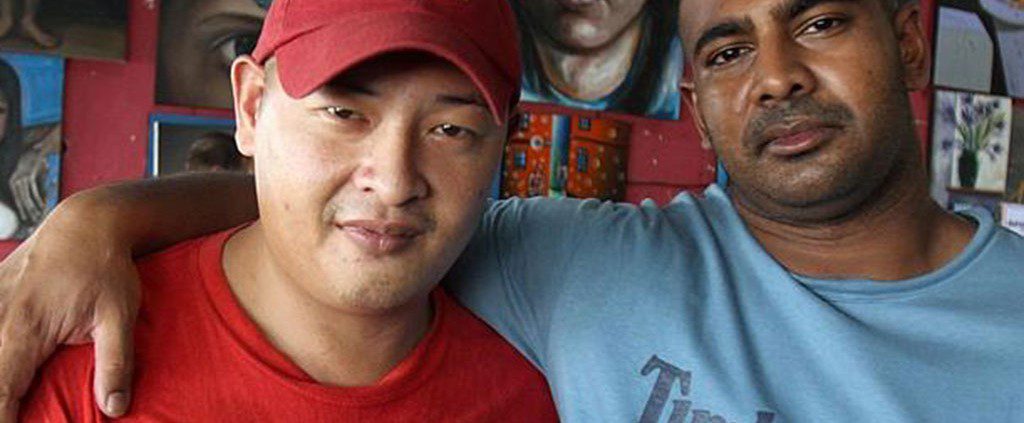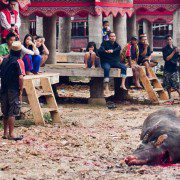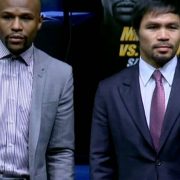Are We Any Different From The Bali Nine Duo?
Photo Source
On 29 April this year, Andrew Chan and Myuran Sukumaran died, after what has been a highly fought and watched case involving two big nations that has dragged on for the past 10 years.
In 2005, the Bali Nine duo (as they are also known) recruited seven other Australians in an attempt to smuggle more than eight kilograms of heroin from Bali, Indonesia into Australia. They were caught and sentenced to death in 2006, and since then, spent almost 10 years on death row in an Indonesian prison. After their pleas for clemency were rejected and last-ditch appeals for a lighter sentence dismissed, the two men were finally executed by firing squad one and a half weeks ago on Nusakambangan, Indonesia’s “death island.”
I first heard about the duo in the news last month, when they were the subject of a diplomatic tussle between Australia and Indonesia. The Australian government had implored, cajoled and even threatened their Indonesian counterpart to lighten their sentences. But despite the international pressure, Indonesia refused to back down, citing its high drug usage rates and its “war on drugs.”
When I read about the plea for clemency, I scoffed. These men were drug dealers—they should’ve known that what they were doing was wrong, and should’ve been fully aware of and prepared to pay for their due penalty. It was as simple as that. Right?
Yet a few days later, I found out something that irrevocably changed my view of the two men.In the 10 years or so that they’d been incarcerated, the duo had changed. Chan, 31, had converted to Christianity, and had become ordained as a pastor after six years of self-study, ministering to other prisoners at Kerobokan prison in Bali. He also ran a cooking school, organized courses, and mentored others.
In a documentary that aimed to educate students about the dangers of drug-taking, Chan was featured reading a letter: “Dear Me, when you are older you will be in a Bali prison and you will be executed. This happened to you because you thought taking drugs was cool . . . Your family and friends are heartbroken.”
On the other hand, Sukumaran, 34, found solace in art, and taught English, graphic design and philosophy classes to other prisoners. He started an artwork business and a clothing brand, and just two months before his death, was awarded an associate degree in fine arts. And according to the Sydney Morning Herald, “family and Christian ministers testified to a late and deep conversion to Christianity in the days leading up to his death.”
Christie Buckingham, an Australian pastor who helped supervise Chan’s pastoral training, said of Chan and Sukumaran: “Being incarcerated makes you take a long, hard look at yourself. Both boys have done that . . . Every human being has a desire to belong. Andrew went in the wrong direction. Anyone can do that.”
And Christie is absolutely right. Just like Chan and Sukumaran, every single one of us has done some wrongs in our lives. It may not have been as serious as drug-smuggling, but we have all sinned nonetheless in God’s eyes. Lies or lust, cheating or cursing—it doesn’t matter. All of us have broken our Maker’s perfect and holy laws, and fallen short of His standards. And just like the Bali Nine duo, every single one of us deserves the penalty for our sin—death.
Yet the Son of God himself chose to die on our behalf, giving us not just a second chance, but everlasting life through His death and resurrection. And it was this fulfilled promise of salvation that was etched in the hearts of the two men as they faced death squarely that fateful Wednesday, singing “Bless the Lord O My Soul” as they were shot dead by the 12-member firing squad.
Make no mistake, I’m not saying that what they’d done wasn’t wrong or that their crimes should’ve been discounted. That’s precisely my point—it was, and they shouldn’t be. Yet just like Chan and Sukumaran, we are all equally fallible, susceptible to sin, and just like them, we’ll eventually have to stand before our Judge to account for what we’ve done.
Yet we can take comfort in the grace of our God who forgives us, for the smallest to the greatest of our sins, when we look to and trust in Jesus Christ who died to save our very souls.
And I believe that Chan and Sukumaran knew this as they prepared to meet their Maker.










Leave a Reply
Want to join the discussion?Feel free to contribute!